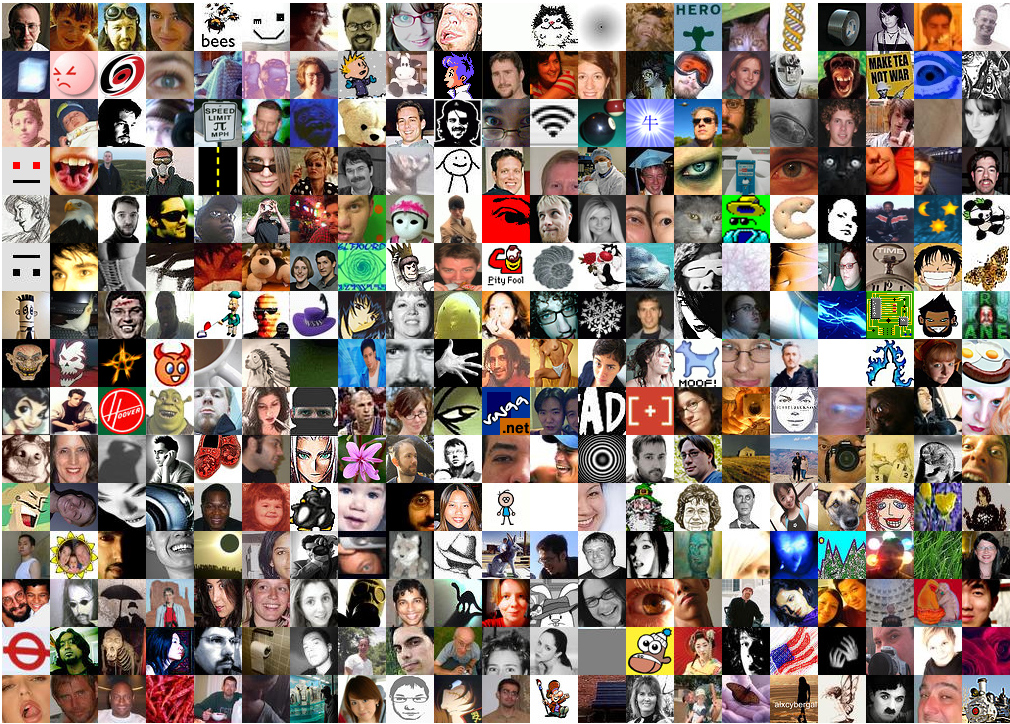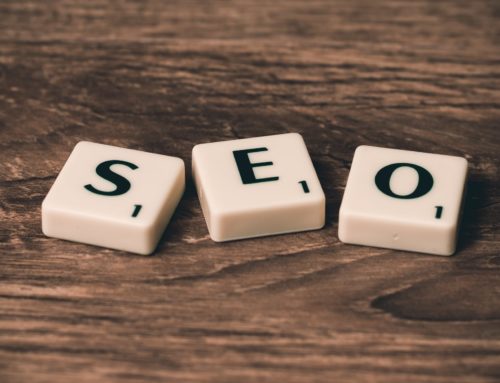Guest Post by Shanan Sorochynski
Many of us seem to be playing the waiting game.
Circles are better than grilled cheese. But the ability to put people in them is not a big enough draw for me to entirely abandon Facebook if only a small number of my contacts set up Google+ profiles.
So far, G+ has only been handy if I want to chat with social media marketers, educators who are using social media in the classroom, and the few friends of mine who are early adopters.
(We haven’t started referring to non-social media enthusiasts as “normies.” But it’s coming.)
Image: Tony the Misfit via Flickr, CC 2.0
Most of the people I interact with in my personal life, the concert notifications I like getting, the updates I look for, etc. etc. are all still over at Facebook. And, more importantly, the audience my organization is trying to connect with is still on Facebook. So my focus is there.
The time I spend poking around G+ needs to be taken from somewhere and Facebook and Twitter are taking a hit.
 It is one more network drawing on my time … and it is asking for a lot of it up front.
It is one more network drawing on my time … and it is asking for a lot of it up front.
I have to fill out a profile, invite people, create Circles, learn how to use it etc. etc.
I also find myself slipping into bad habits.
I’ve been conditioned by my use of Facebook to treat most social networks like a variation of Facebook.
I want to compare G+ to what I already know.
Image: Meer via Flickr, CC 2.0
When Twitter came out people described it as being a website that was basically a bunch of Facebook status updates.
LinkedIn was like Facebook, but for work.
Google+ is pretty much everything I like about Facebook but less creepy and better organized.
But, because G+ is not Facebook, I’m not sure of the rules of engagement.
I don’t know how I want to interact with people there.
New social networks come with the opportunity to revaluate why you have the people you do in your orbit.
It is not setting up your profile and migrating things over that is the time killer. It is looking at people’s profiles and asking, “Why are you here? What is our connection REALLY, and where do I put you?”
Do I really want to add everyone from my Twitter, Facebook and LinkedIn accounts to Google+?
Am I inevitably going to start creating Circles like “People you put in a Circle so they’d stop asking you to put them in a Circle”?
Part of G+’s appeal is its potential to respect the different kinds of relationships users have with each other and easily adapt to changes in those relationships.
Facebook asks for very little of me … if you don’t count putting up with spam, pokes, privacy issues, data mining, etc., etc.
G+ is work. But I think it is worth it if the result is finding a more efficient way to connect with people meaningfully.
How are you approaching your new G+ account? Are you adding established contacts? Are you finding it easier to make new ones? Has your presence on other social networks dropped off? Please let me know.
 Shanan Sorochynski manages the University of Regina’s first official blog: YOURblog. Previous to this she was the managing editor of U of R Report, the University’s faculty and staff internal publication, and a print journalist in Manitoba.
Shanan Sorochynski manages the University of Regina’s first official blog: YOURblog. Previous to this she was the managing editor of U of R Report, the University’s faculty and staff internal publication, and a print journalist in Manitoba.








@Ari Herzog
True enough.
Certainly many are trying it. I think the unwillingness to jump in with both feet comes from groups still needing to go through the process of listening before engaging.
PS Orange juice tastes like Facebook but with bright top notes and a smooth citrus finish.
You can guess and wait all you want — but that is silly.
Until you drink a glass of orange juice you will never know how it tastes. By corollary, until you use Google Plus you will never know how it works.
@RyoatCision
We’re waiting too. It does make it tougher though. Our resources are tight. We need to be careful about creating sites because everyone else seems to be. It’s an old nugget, but it still holds true: It is better to do a few things well than a lot of things poorly.
@Shonali @HowieSPM @Shanan All I know so far is that they have been accelerating the process and demand is high (http://www.christianpost.com/news/google-businesses-sign-up-deadline-today-52314/). I share your interest–can’t wait to see how this rattles out. Whatever your feelings about Google or G+, no doubt they have massive resources and incredible talent.
@RyoatCision @HowieSPM @Shanan Has Google+ opened to businesses/organizations yet? Seems to me that’s when we’ll really see if it continues to work the way it does for those who are enjoying it. I do look at my + a few times a day, but am not all that active in it. Though I will say the few days that I have been active in +, my Twitter/Facebook activity dropped remarkedly… especially Twitter.
Shanan, I think you raise a very precise question that other posts I’ve seen indirectly ask: is G+ worth the work? So far Circles and the ease and encouragement of organizing friends is the largest draw, but I also think the open qualities of it and, presumably, what will be a more robust search function, figure heavily too. These are features that make Twitter so strong, but G+ promises those in addition to a more static, profile-centric experience. These, to me, will also play a major role in the kinds of presences brands will or will not have there, as @HowieSPM is questioning. But it’s all a big guess at this point.
@HowieSPM
@HowieSPM
The University website serves a different purpose than Facebook (and yes it is absolutely getting more traffic than the Facebook fan site). The website stores far more information our stakeholders need than could realistically be held on Facebook (Course descriptions, class schedules, etc. etc.)
With that said . . . . a shovel clears more snow, but I still keep spoons in the house. You need different tools for different things.
We want to catch that percentile who may otherwise fall through the cracks. The information and service they receive through our social media properties may catch students we would otherwise lose (or have leave our institution with a less than stellar experience).
And sure, there may be students who find it easier to ask a question on Facebook than simply look for it on the website. So what? We should be striving to make their experience as stress-free as possible.
@Shanan I think my question is a relative one. I have to believe more students find you via Google Search than Facebook and if not that would mean to me the SEO is not optimized. And I bet way more are going onto the school website for info than coming to the Facebook page.
As for working in the ways you say I don’t doubt people use the Facebook page. And it works for those that do. But what percent of students are using it to get info and ask questions vs say visiting your website on their own. You could look at the traffic/visit data and compare.
When I look at pages I look really at how many fans. How many Likes + Comments per post. How many total customers (in your case it would be current students + potential students) and then work out the percentage of activity.
I am torn about the concept of being where people want us to be. I see no problem with a Facebook page funneling people to a website off the network for most things. But it is as easy way (like twitter) for people who need a people response to reach you. I also feel it is lazy way for them if they ask easy questions readily answered with two or three clicks.
@HowieSPM
“I am curious if I was to review your numbers on Facebook if the results would show a platform that is working for you. There is a misleading view that because our target audience is there that we can reach them.”
You would need to define “working for you”. For us it is not only about finding and connecting with potential students, it is about offering support to new (and current) ones.
In many cases it is our audience who is using Facebook to connect with us or each other. New students might not know who to direct their questions to, so, they post them on Facebook. International students also use it to find U of R students from their country. The list goes on.
Twitter is great for communicating with our stakeholders during emergencies: https://shonaliburke.com/2011/04/18/that-time-our-website-was-hacked/
And Google+ . . . . . I don’t know yet.
Hi Shanan. I am curious if I was to review your numbers on Facebook if the results would show a platform that is working for you. There is a misleading view that because our target audience is there that we can reach them. And so far I see very few being reached.
I never felt these networks were about business. They are about people connecting. Just because the current versions allowed brands and businesses in doesn’t mean future ones will or should. There is no inalienable right for marketing or non-personal communities to exist on social networks. Currently they have been invited in. But since Ad Support is a bad biz model if someone creates a great network/platform so good we will pay like we do for cell service, they most likely will bar brands from polluting the space because they won’t need the brands.
That said on a personal note there have been many discussions on rules. G+ is mostly my twitter friends/network though I am only adding to circles the people I am friends with vs ones maybe I just follow on Twitter. I actually have shunned the big business names because Facebook to me was my personal network for friends/socializing and very few work related connections did I allow inside. Some people are using Twitter rules other Facebook rules as to whether follow people back. Will be interesting how this evolves.
I am hoping G+ can replace Facebook eventually but my social life friends are mostly on Facebook. So time will tell. But where G+ has had a huge impact on me is the people I know from Twitter and Blogs I am now interacting with on G+ in ways that are expanding how well I know them. Instead of seeing a tweet or reading a blog post I see more of their thoughts and views and also a more personal side.